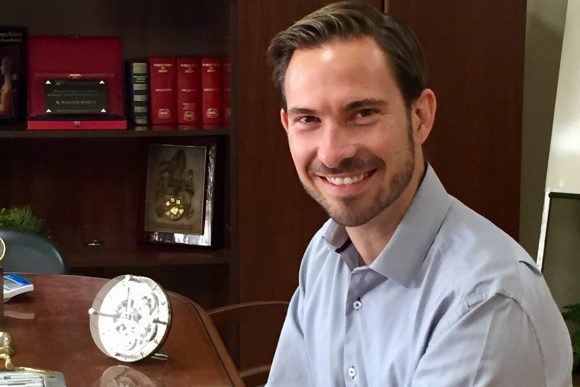On today’s episode we are discussing the machining industry in Spain.
Our guest is Patrick Bosch, Managing Director of Nagamohr, a 150 employee Tier 2 automotive company headquartered in Madrid, Spain. According to Patrick, despite Spain’s reputation as having a relaxed culture, its people are quite serious about manufacturing.
Scroll down to listen to the podcast. Or listen on your phone with Google Podcasts, Apple Podcasts or your favorite app.
Main Points
Patrick talks about his family’s German origin and about a subsidiary his company started recently, Nagamex, in Mexico. (2:55)
Patrick talks about Nagamohr’s business, producing turned parts for Tier 2 automotive. The company has over 80 machines in its shop in Spain, including a large number of Hydromats, as well as CNC multi-spindles and other CNC machines. It has a turnover of around 15,000,000 euros per year. (4:05)
Patrick says Nagamohr was originally a joint venture between a Spanish firm and a German firm, Nagares and Mohr, but the two could not get along, even while the company just existed on paper. Nagares, the Spanish division, wanted out of the partnership, so Patrick’s family took its place. Only a few years after the company was founded, the Bosch family assumed full ownership of Nagamohr. (5:25)
Patrick talks about his background. He studied business administration and engineering at university. For a few years he worked in the finance field, but when the opportunity arose he decided to join his family’s company in 2011. He assumed a leadership role in 2013. (6:40)
Patrick’s talks about why his family moved to Spain. He is the first generation of his family born in the country. In 1962 Patrick’s father originally visited Spain to study Spanish, but decided he preferred to stay in Spain than return to Germany. Patrick’s mother is also German. (8:00)
Patrick says that the automotive industry represents over 10% of Spain’s GDP. He says Spain’s manufacturing is most significant in the country’s Basque region (in the north) as well as Catalonia, while his location in Madrid ranks third.
Patrick discusses the division between the regions of the Spain. He says half of the people in country identify themselves as Spanish, while the other half of people identify themselves by their region. (11:45)
Patrick talks about the skills gap in Spain. He says it’s hard to find skilled workers in the machining field, so usually its necessary to train employees in house. (13:10)
Patrick talks about the industries commonly found in Spain besides automotive, including the energy industry and engineering. (14:40)
Patrick says unemployment in Spain fluctuates quickly and can be very high because of the country’s reliance on the seasonal tourism industry. He says before the COVID-19 crisis the country’s unemployment rate was around 11%, but right now it is around 18%. (15:22)
Patrick dispels the myth that Spanish people are lazy workers. He says the Spanish work day is similar to that of other countries but the custom of the Spain is to operate one hour later than the rest of the world, as though it were in another time zone. For instance, someone working in a shop in Spain might start at 7:00AM rather than 6:00AM, but then work an hour later in the day. Rather than eating lunch at noon, Spanish people often eat lunch around 2:00PM. Then they typically start eating dinner around 8:30PM and as late as 10:00PM. (17:10)
Patrick discusses salaries in Spain and Spain’s government-run programs such as health care. He says salaries range widely, with entry level in a shop around 20,000 euros a year, with an additional 33% going to the government for social security and health care. He says that Spain’s public health care is very good. He says inexpensive private insurance is also available but generally everyone uses the public health care providers for serious medical concerns even if they have the private insurance. He jokes that he always asks himself why he pays for private insurance. (18:50).
Patrick says people in Spain work much harder than other nations realize. (21:20)
Patrick explains the origins of Nagamex, Nagamohr’s Mexican subsidiary, which was originally conceived in 2015 (See video below). Two major customers suggested the company should build an additional facility to be a local supplier to North America. It started the company there two years ago. Patrick says the biggest challenge of working in Mexico is the paperwork. He says there is significant employee turnover there but also many good workers. He also says he hasn’t encountered any corruption there so far. He says the Spanish language and Western culture was one of the driving factors behind building a plant in Mexico rather than in Asia. (21:55)
Patrick says that 99% Nagamohr’s work is automotive. The company was hit hard by COVID-19, with a reduction of more than 70% for two months. Business has picked up somewhat in the last few month. (27:00)
Patrick talks about something new he learned recently. He says two weeks ago at the beach he saw someone riding a special bicycle on water. (27:45)
Question: Do you prefer to work early or to work late?
Podcast: Play in new window | Download



